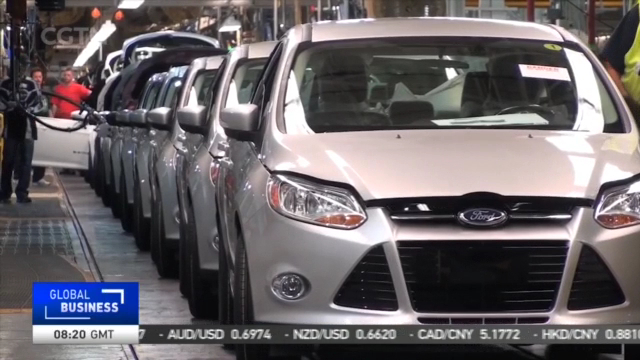
17:07, 07-Jun-2019
Tariff on Mexican Goods: US auto sector contends with more pressure
Updated
00:01, 10-Jun-2019
03:39

The U.S. is poised to impose a 5% tariff on all imported Mexican goods on Monday if negotiators meeting in Washington don't reach an agreement on ways Mexico can do more to halt the flow of illegal immigration. And those tariffs could rise to 25% by October. That has caused alarm among a number of sectors on both sides of the Rio Grande. And automakers could be hit the hardest, as CGTN'S Dan Williams now reports from Detroit.
It might not look like much but this abandoned factory in Detroit has a special place in the auto industry history books.
It was here in 1913, that Henry Ford began the mass production of automobiles on a moving assembly line, bringing down production time for a single car from 12 hours to just 93 minutes.
Although Michigan remains a key auto manufacturing U.S. state, most automakers have since utilized the lower labor costs in Mexico.
But that is now threatened after U.S. President Donald Trump promised to slap tariffs on Mexican goods, if Mexico does not halt the flow of illegal immigration. The tariffs would start at 5% and gradually rise to 25% by October.
KRISTIN DZICZEK, VP FOR INDUSTRY, LABOR CENTER FOR AUTOMOTIVE RESEARCH "Five percent does not seem like a whole lot, but for some vehicles, especially the smaller sedan's that are made in Mexico, that's the whole profit margin. So they are not going to be able to pass that along and small sedan users are particularly price-sensitive, so we will just see those vehicles disappear out of our market we will have less consumer choice. And at 25% it just becomes ridiculous."
If the tariffs are imposed, the Center for Automotive Research, a leading auto think tank, not only predicts sharp price increases for US consumers but also U.S. job losses that could approach 400-thousand.
That is in contrast to the message of the U.S. President who is predicting the tariffs could see manufacturing jobs return to the U.S.
MICHELLE KREBS, EXECUTIVE ANALYST COX AUTOMOTIVE "You don't just pick up a plant and move it to the U.S. Plants cost billions of dollars, just acquiring the land, costs a lot of money. This idea that everybody will move their production to the U.S. doesn't make sense."
DAN WILLIAMS DETROIT "The auto industry has had to contend with a number of pressures in recent years. That includes tariffs imposed on steel and aluminum imports. And the impact of Washington's trade war with Beijing: the higher cost of auto parts from China."
Industry research shows that automakers invested more than 131 billion dollars in North American plants and facilities since 2009. Although more plants opened in Mexico, 75% of that investment was in the U.S. But that investment has slowed considerably in recent years, against a backdrop of uncertainty and tariffs.
KRISTIN DZICZEK, VP FOR INDUSTRY, LABOR CENTER FOR AUTOMOTIVE RESEARCH "Usually investment is running at three and a half billion dollars a quarter. It is less than half that right now. You just want to know, what are the rules of the game so that we can play and compete for fairly and they just want some stability."
The auto industry is undergoing significant change. New players are emerging as the move towards electrified and autonomous vehicles intensifies. With new car sales also dipping, these tariffs would add yet more pressure on automakers. Dan Williams, CGTN, Detroit.

SITEMAP
Copyright © 2018 CGTN. Beijing ICP prepared NO.16065310-3
Copyright © 2018 CGTN. Beijing ICP prepared NO.16065310-3